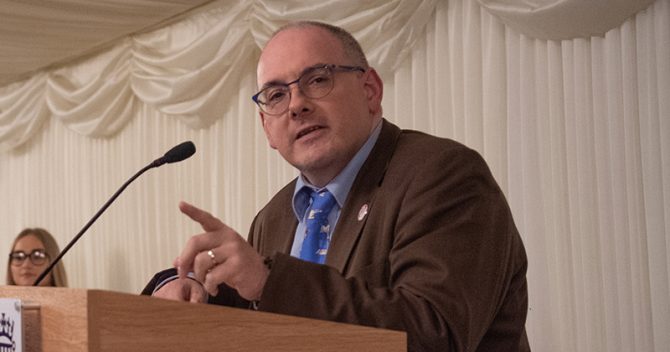A major business representative group has called on the government to end its “failed experiment” of the apprenticeship levy.
The Confederation of British Industry (CBI) made the demand in its ‘Learning for life: Funding a world-class adult education system’ report, released today, which says nine in ten people will need new skills by 2030.
Many businesses which pay into the levy – those with an annual pay bill of over £3 million – find it “challenging to use for their training needs” and it has become a “barrier” to increasing their investment in training, the report says.
“Psychologically, many firms are reluctant to invest more in other forms of training when they still have lots of ‘unspent’ funds showing in their digital apprenticeship accounts,” it reads, adding that the rates at which businesses utilise their levy allocation is low because of the “restrictive nature” of how it can be spent.
Many employers have faced problems using the levy to upskill or retrain workers, often on higher-level programmes, because apprenticeships have to last at least a year and can last several on higher programmes, whereas most employees only need “top-ups” in their knowledge.
“The government has long promised meaningful reform of the apprenticeship levy, but has not delivered it,” says CBI director general Dame Carolyn Fairbairn.

“It is time to end this failed experiment.”
The CBI recommends the government use the upcoming Spending Review to turn the apprenticeship levy into a “flexible skills and training levy”, which can be used for short modular courses, pre-apprenticeship programmes, product training, professional courses, and soft skills training, regulated by the Institute for Apprenticeships and Technical Education and the Office for Students.
Committing to keeping the rate at which companies pay a levy at no more than 0.5 per cent for the duration of this parliament is another of the CBI’s recommendations.
They also want the Treasury and the Department for Education to run a performance review of the levy system every three years, bringing in stakeholders like employers and providers, to monitor its progress against an agreed set of aims.
The 190,000-strong confederation has reported prolifically on the apprenticeship levy, calling for greater government investment but not always for reform.
In a report published in September 2019, the CBI called for an annual £100 million top-up to the apprenticeship levy from government.
Another report on apprenticeships from the body published in January 2019 said employers should be allowed to appeal for more time to spend their levy funds if the apprenticeship standards they want are still in development.
However, a report from November 2019 urged the government not to go ahead with mooted restrictions to how employers could use the levy, saying limits on apprentices’ age, income or level of training would make over three-quarters of businesses and trade associations either “dissatisfied” or “very dissatisfied”.

Other recommendations from the CBI’s latest report include skills tax credits for small-to-medium enterprises to spend on training – an idea favoured by education select committee chair Robert Halfon which was first mooted in the 2012 Richard Review of Apprentices, conducted by former Dragons’ Den star Doug Richard.
The Association of Colleges released a report on Friday which found over half of SMEs do not think enough is being done to help their businesses skill and reskill their workforce ahead of the end of the Brexit transition period.
Fairbairn said replacing the apprenticeship levy and introducing tax credits “would encourage every firm to invest more in the skills that are essential to the long-term success of their company and workforce”.
The research for this report was carried out by management consultants McKinsey & Company before the outbreak of Covid-19.
Education Secretary Gavin Williamson said: “Our priority is making sure people across the country gain the skills we know employers value and that will help our economy recover as we build back better from coronavirus.”
He highlighted the recent Lifetime Skills Guarantee announced by the prime minister and new incentive payments for employers of £2,000 for each new apprentice they hire aged under 25 and £1,500 for those aged 25 and over “in recognition of the value apprentices of any age can bring to businesses and to our economic recovery”.
“Our forthcoming White Paper will also outline plans to build a high-quality further education system that will provide the skills that individuals, employers and the economy need to grow and thrive,” he continued.









In industries that are heavily production focused with a commitment to vocational & technical qualifications, the 20% off job training killed it dead. Made it a complete non-starter as many companies have reduced headcount to the bare minimum, there was simply no way they had the resources to cover the number of hours an apprentice would be paid for but not working.
And didn’t we all say so when it was announced, Gavin.
What the levy did, was to make Financial Directors become directly involved in learning and development, whereas in the good old days, a department head asked for funds to spend on training. The FD signed it off, and, providing the money was spent within budget, then all was well with the world……………….
…………and it’s taken the CBI seven years to make a fuss.